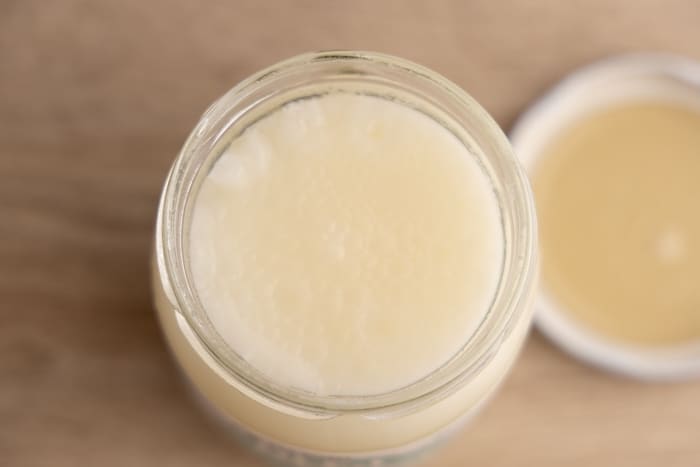Are you a fan of coconut oil? If so, you may have encountered the frustrating issue of mold growth in your jar of coconut oil. Mold can not only ruin the taste and quality of your beloved oil but also pose health risks. In this article, we will explore the causes of coconut oil mold, how to prevent it, and effective treatment methods. Read on to learn more about keeping your coconut oil mold-free!
Causes of Coconut Oil Mold
Understanding the causes of coconut oil mold is crucial in preventing its occurrence. Here are some common factors that contribute to mold growth in coconut oil:
- Moisture: Moisture is the primary culprit behind mold growth. If your coconut oil comes into contact with water or any other liquid, it creates an ideal environment for mold to thrive.
- Air Exposure: Exposure to air can introduce mold spores into your coconut oil. Once these spores find a suitable environment, they can quickly multiply and form mold colonies.
- Contaminated Tools: Using contaminated utensils or hands to scoop out coconut oil can introduce mold spores into the jar, leading to mold growth.
- Improper Storage: Storing coconut oil in a warm and humid environment can promote mold growth. It is essential to store your oil in a cool, dry place away from direct sunlight.
Preventing Coconut Oil Mold
Prevention is key when it comes to avoiding coconut oil mold. By following these simple tips, you can keep your coconut oil fresh and mold-free:
- Keep it Sealed: Always ensure that the lid of your coconut oil jar is tightly sealed to prevent air and moisture from entering.
- Use Clean Utensils: Use clean and dry utensils or spoons when scooping out coconut oil to avoid introducing mold spores.
- Store in a Cool Place: Find a cool and dry spot in your kitchen or pantry to store your coconut oil. Avoid storing it near the stove or any other heat source.
- Avoid Water Contamination: Make sure your hands are dry before touching the coconut oil jar, and avoid using wet utensils near the oil.
- Regularly Check for Mold: Inspect your coconut oil regularly for any signs of mold growth. If you notice any, discard the entire jar to prevent further contamination.

Treating Coconut Oil Mold
Despite your best efforts, mold can sometimes find its way into your coconut oil. If you discover mold growth, here are some effective treatment methods:
- Discard the Moldy Oil: The first step is to discard the entire jar of coconut oil if you spot any mold. Do not attempt to scoop out the moldy portion and use the rest.
- Clean the Jar: Thoroughly clean the jar with hot, soapy water to remove any remaining mold spores. Rinse it well and let it dry completely before reusing.
- Replace with Fresh Oil: Once the jar is clean and dry, refill it with fresh coconut oil. Remember to follow the prevention tips mentioned earlier to avoid future mold growth.
FAQs on Coconut Oil Mold
Q: Can I still use coconut oil if I see a small amount of mold on the surface?
A: It is not recommended to use coconut oil if you spot any mold, even in small amounts. Mold can produce toxins that can be harmful to your health.
Q: Can I prevent mold growth by refrigerating my coconut oil?
A: Refrigerating coconut oil can help extend its shelf life, but it may not completely prevent mold growth. Moisture can still accumulate in the jar when taken in and out of the refrigerator, increasing the risk of mold.
Q: Are there any natural additives I can use to prevent coconut oil mold?
A: Yes, adding natural preservatives like vitamin E oil or rosemary extract to your coconut oil can help inhibit mold growth. However, it is essential to use them in the correct proportions to avoid altering the taste or quality of the oil.
Conclusion
Coconut oil mold can be a frustrating issue, but with proper prevention and treatment methods, you can keep your oil fresh and mold-free. Remember to store your coconut oil in a cool, dry place, use clean utensils, and regularly inspect for mold. If mold does appear, discard the entire jar and clean it thoroughly before refilling with fresh oil. By following these guidelines, you can enjoy the many benefits of coconut oil without the worry of mold contamination.
Fun Fact: Did you know that coconut oil has been used for centuries in traditional medicine for its various health benefits? From skincare to cooking, coconut oil has a wide range of applications that make it a versatile and popular choice among many.
Originally posted 2023-01-08 20:24:03.

